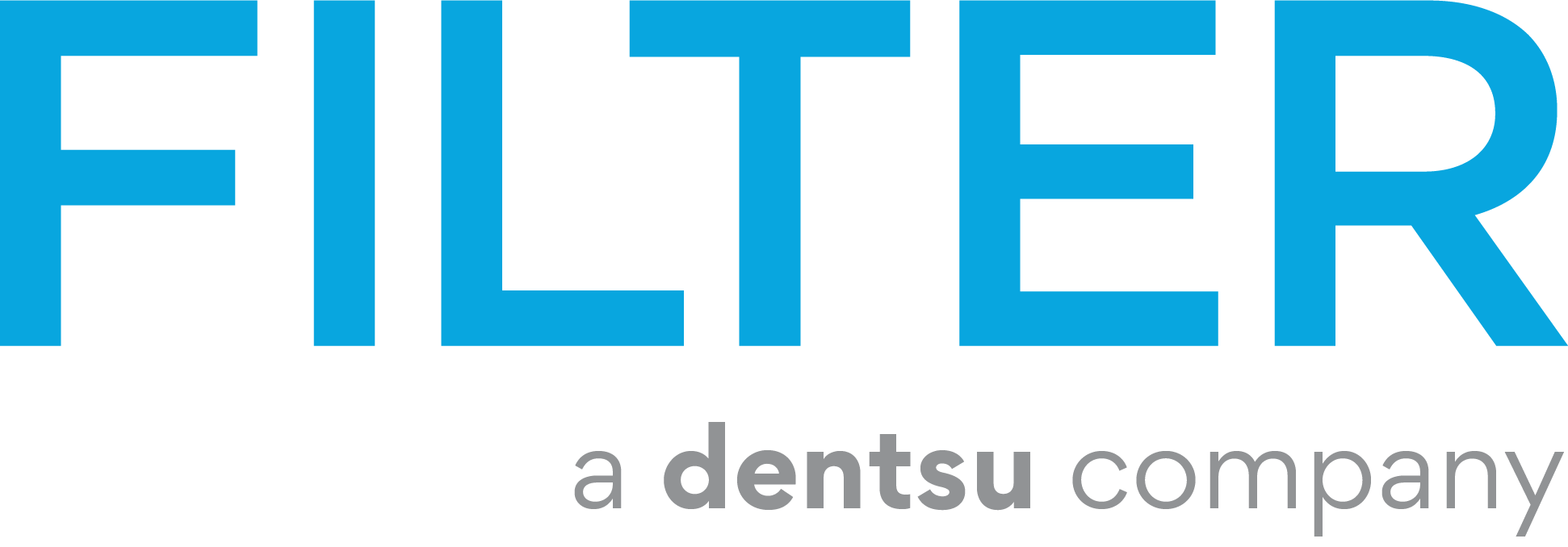“The proliferation of digital media creates exciting new opportunities to engage with consumers, but ferocious complexity too. Marketers know they must offer an integrated brand experience across both traditional media and the fast-changing ecosystem of digital devices and channels that their customers use.”
– McKinsey & Co1
Managing the customer experience is one of the hardest things that a marketer needs to think about in today’s complex, multi-touchpoint world.
Rather than tackle such challenges entirely on their own, most brands turn to an outside partner for help – including traditional agencies, staff augmentation firms, consultancies and other resources who may provide on-site and other ‘collocated solutions.’
While each of these resources can have a role to play in a company’s resourcing strategy, in-housing partners are uniquely positioned to deliver added value and benefits to CMOs and their marketing organizations.
This blog series has aimed to provide marketing leaders with a deeper look into those unique benefits. Part One of this series discussed how IHPs – in-housing partners, outside firms who build and manage embedded teams and bespoke in-house solutions for clients – offer CMOs a vital new “hybrid” alternative to the traditional agency-or-internal-staff option. Part Two explored how the unique “embedded” model of IHPs empowers them to deliver greater sustained impact and value for clients through optimization and continuous improvement of their marketing and XD operations. And Part Three emphasized the ability of IHPs to deliver transparency, command of the customer experience, and brand alignment.
This post takes a look at how in-housing partners are unique among marketing services firms in giving CMOs highly customized solutions with the flexibility, scalability, and specialized expertise they need to drive growth and transformation.
Customized to Client Needs
Marketing consultancies and traditional agencies have a tendency to define a proprietary approach – and then drive clients through this model to reach a set of desired results. This can work just fine for many brands, but those in the throes of growth and transformation need a model that is more malleable and tailored to its unique position and needs.
In-housing partners approach the situation from the other direction, leveraging their operational expertise to build marketing solutions matched to the specific circumstances of each client. They work collaboratively with the marketing leaders to design a custom solution, delivery model, and team that optimally suits their landscape and fills key gaps in expertise and executional horsepower.
Typically, the options available to clients are nearly unlimited – and far beyond the nature, scope, and sophistication of staff augmentation firms.
In-house partners can, for instance, develop and manage a fully bespoke agency to execute on programs across all of a brand’s digital channels, content platforms, creative programs, and strategic initiatives. Alternatively, such an agency may be tasked to design a dedicated team to support a single channel (e.g., managing the client’s email marketing or social media), a specific project, or a focused set of managed services like video production, UX research, or 3-D animation.
Yet another common solution is the creative studio or center of excellence, where in-house partners deploy a centralized team to meet the ongoing needs (e.g., content production) of various stakeholders across multiple departments and divisions. Any of the above solutions can be easily scaled and modified as a client’s needs evolve with time (e.g., to meet seasonal demand, support added digital capabilities, or drive a new phase of business evolution).
In short, in-housing partners provide access to a future-proofed set of capabilities that nurtures the client’s own internal growth and maturity.
Agile in the Face of Uncertainty
Once designed and built, today’s resourcing solutions require an extra measure of agility: faced with an increasingly dynamic and often uncharted transformation journey, CMOs need to quickly and effectively adapt to whatever changes might come their way.
Some of these changes are driven by the vagaries of the market – seasonal fluctuations for example, or broader economic conditions that may bring financial pressure or require strategic realignments. Others are driven by advancements in martech and data platforms or related shifts across channels and customer habits.
Still, others are based on the complexity of engagements at each touchpoint, and the many ever-changing variables involved with delivering a connected customer experience for products and services of different value, length of utilization, competitive differentiation, etc.
In short, even the best CX programs are constantly learning, tuning and improving their strategies and tactics – and will never stop optimizing. Not many outside agencies can rapidly adapt with these dynamics.
“Many client organizations are adopting agility training as a means to transform their business, while we see fewer agencies following this lead of speed and flexibility”
– MediaLink and WARC2
And as clients transform their own internal capabilities, the need has arisen for agencies and consultancies to adopt an even more flexible model – one that allows the brand to shift the volume, type, or pace of support it receives to match the shorter-term market, personnel, or capability changes (e.g., to meet seasonal demand, support added digital capabilities, or drive a new phase of business evolution).
The traditional agency model is often too rigid to match this need in a cost-efficient manner; and parsing “overflow work” out to a consultancy is not as simple as it sounds – just packaging up the request can cost valuable time and disrupt well-oiled internal workflows.
“Many clients and brands are going through transformations in their business, because they want creativity in their walls and see it as a fundamental part of business success. And they can’t afford to work on old agency timelines.”
– MediaLink and WARC3
Meanwhile, the unique capabilities and operating model of IHPs enable the best of them to support CMOs with a high degree of “flexpertise” – the ability to swiftly deploy an embedded solution of nearly any configuration, and to rapidly grow or adjust that solution to match new business dynamics, leverage new technology investments, or uplevel new CX strategies.
This high degree of dexterity is fueled by more than just agile teams of veteran digital specialists. IHPs bring processes, infrastructure, and service delivery models that are also designed to scale and adapt with change – operational flexibility other collated partners can’t match. Program management, project management, account management, and other engagement functions can be added, dropped, or restructured as needed. Solutions and their supporting processes can be quickly re-designed to optimize for new conditions.
Traditional agencies may be able to build a dedicated team for their client. But few if any have the operational capabilities to rapidly stand up a second or third team (and its supporting infrastructure) when needed, duplicate that team on other markets, or absorb any rapid up- or down-scaling of those teams.
Nor can they typically shift delivery service models – e.g., between fully outsourced, managed services, consulting contracts, etc. – as a client’s needs evolve.
Through their unique agility, in-housing partners help clients overcome barriers to adoption by de-risking the upfront investment against an uncertain future, effectively apportioning control and accountability, and supporting rapid business transformation as circumstances change over time.
World-Class Expertise, Plus…
Of course, bespoke solutions and agile services won’t drive digital transformation if they don’t fuel that innovation with world-class know-how and highly specialized expertise. Whomever their partner, CMOs ultimately require the highest degree of speed, quality, impact, and ingenuity to drive a superior customer experience. As McKinsey notes, “this means, for instance, content producers and experience designers who are comfortable using data, and data-driven marketers who are willing to think outside the box and move closer to consumers.”4
Finding, recruiting and retaining that talent is a huge challenge for any company (one that we will discuss more in our next post – and that we have also detailed previously in this blog). Again, this challenge compels CMOs to engage partners for support; and again, this is where in-housing partners stand apart from staffing firms, on-site agencies, consultancies, and other ‘collocated’ resources.
That’s not to say that quite a few of these other resources can’t also claim to hold highly skilled and specialized digital expertise within their walls. But so do in-housing partners – some of whom have lengthy portfolios of groundbreaking work with visionary brands.
It’s not enough, however, to simply deploy digital talent on-site with a client. Teams must possess distinct abilities and acumen to work embedded within a client’s distinct organization and culture, integrated with their own people and processes.
To ensure success, in-house partners (the best ones, at least) design and invest heavily in people-ops practices in ways traditional agencies and consultancies don’t – because they typically don’t have to. IHPs focus those efforts on specialized recruiting, coaching, career pathing, benefits management, and employee engagement practices – and foster lasting relationships with the digital specialist communities in the markets they serve.
The value of all this to the client CMO?
- Sustained expertise: In-housing partners build solutions for long-term, often indefinite engagements. As such, they don’t ‘sell with the A-team and service with the B-team,’ or pull skilled specialists in the middle of an engagement to service the next big client.
- Greater creativity, resourcefulness, and adaptability: Because they hire specifically for embedded-team solutions, IHPs uniquely prioritize these ‘soft skills’ – which happen to be the three most important skill gaps identified by marketing leaders in Gartner’s Organization Capabilities Survey.
- Support for your unique company culture: Similarly, in-housing partners must bring a depth and deftness of respect for each client’s unique culture of innovation. Practices that bring high EQ to each engagement team – to ensure the enduring maintenance and cultivation of that culture – is a key priority unique to the best IHPs.
- More help, right when you need it: Through deep and constant engagement with digital specialist communities, IHPs are more able to bring new or additional expertise to existing client teams. Most on-site agencies use the same process to recruit for client teams that they use for standard FTEs – which can be quite lengthy given the strong industry demand for digital expertise.
Again, any outside marketing partner can possess a high level of digital expertise; IHPs have no special monopoly. But the benefits listed above are just a few of the unique strengths in-housing partners can deliver for clients alongside that expertise.
At the end of the day, in-housing partners help companies reduce the risk of their strategic sourcing investment in pursuit of digital transformation around the connected customer experience. They enable clients to quickly ramp up capabilities with a right-size, right-fit solution, optimize that solution over time with agility and scale, and ensure performance is truly aligned with growth ambitions as programs and processes mature.
“Delivering on this promise requires a whole new way of operating. Marketing departments need to be rewired for speed, collaboration, and customer focus. It’s less about changing what marketing does and more about transforming how the work is done. Based on successful cases we’ve seen, we estimate that making this change can unlock 5 to 15 percent of additional growth and trim 10 to 30 percent of marketing costs.”
– McKinsey & Co5
1. “Maximizing Marketing Value Through Smarter Procurement” McKinsey, August 2017
2. “Realigning the Marketing Industry: An Examination of the In-housing Trend in 2020 and Beyond” MediaLink and WARC, Feb 2020
3. ibid
4. “Modern Marketing: What It Is, What It Isn’t, and How To Do It” McKinsey & Co., March 2020
5. ibid






